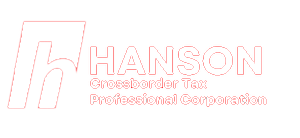Will the IRS and CRA ever align on tax treatment?
Whether you are an employee or an employer, employee stock ownership plans (ESOPs) can be a great vehicle for creating wealth and remunerating employees without depleting cash resources. In Canada, ESOPs can come in the form of stock options, employee share purchase plans, and bonus plans. Depending upon the type of ESOP, income recognition occurs at grant, vest or exercise of the option.
The Canada Revenue Agency (CRA) recognizes that stock options are a form of compensation to attract, engage, and retain employees as well as encourage company growth. Given this progressive stance, it might surprise you to know that, to date, there has been little progress in terms of the CRA and the Internal Revenue Service (IRS) coming together on tax treatment of ESOPs. In fact, if you receive ESOPs and are required to file tax returns in multiple jurisdictions, you could be at risk of double taxation.
Let me explain further.
In both Canada and the U.S., stock options are a commonly used ESOP that grant employees the right to purchase shares of a company at a set price (i.e. exercise or strike price) in the future, once certain milestones are met (i.e. vesting). The value of the stock appreciates over time and the employee pays a lower price to purchase the shares. The spread between the exercise price and actual value on the date of exercise is considered employment income and taxed as such. The stock appreciation from exercise to disposition is taxed as a capital gain.
The tax issues come into play when stock options are issued, for example, by an American employer to a Canadian employee because capital gains are taxed differently in Canada and the U.S., creating misalignment in the tax treatment of stock options. As a means of incentivizing employees, the benefit of stock options is decreased significantly if the employee does not receive preferential tax treatment on the stock option income or has to file income tax returns in both Canada and the U.S.
At a high level, the disparities between these neighbouring countries’ tax treatments include:
1.) The IRS taxes capital gains on stock held for more than one year and applies preferential tax rates, (i.e., 0%, 15% or 20%, dependent upon the taxpayer’s income tax bracket). The CRA, however, uses ordinary tax brackets to tax capital gains, but a portion of the gain – currently 50% – is excluded from income tax.
2.) In the U.S., when certain conditions are met, the tax deferral of the stock option benefit is available to qualified or incentive stock options (ISOs). In Canada, taxation is deferred only if stock options are issued by a Canadian-Controlled Private Corporation (CCPC) and the stock option is taxed using ordinary tax rates. A deduction may be available equal to 50% of the total taxable benefit.
This means that Canadian residents receiving ISOs from a U.S. employer are not able to defer the tax because the stock option is not issued by a CCPC, resulting in Canadian taxation occurring at exercise and U.S. taxation occurring at disposition. If the options are sold in a subsequent taxation year, the U.S. tax is not available to use as a foreign tax credit on your Canadian tax return and you could be double-taxed.
The good news is that the Canadian government, recognizing the issue at hand, is exploring changes to the tax treatment of stock options in order to create better alignment with the U.S. On June 17, 2019, the Government of Canada issued a news release announcing their intention “to move toward aligning the tax treatment of employee stock options with that of the United States for employees of large, long-established, mature firms.”
The bad news is there have not been any announcements or enactments of any proposed changes as of yet. While we wait with bated breath, it might be a good time to review your stock option agreement if it involves a cross-border element
Where to find us
4-209 Speers Road
Oakville, ON, L6K 0H5
Canada
Contact Us
Meetings are by appointment only.
Phone: +1 855 640 1730
Local: +1 905 845 1194
Fax: +1 833-203-9641
Email: mail@hcbtax.com




